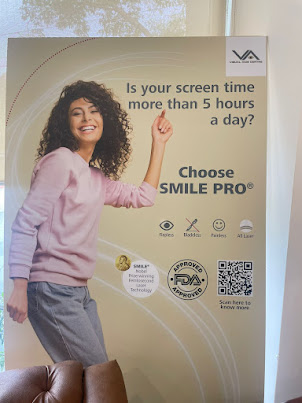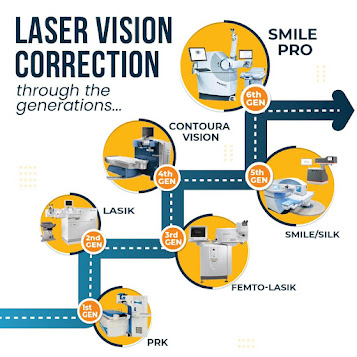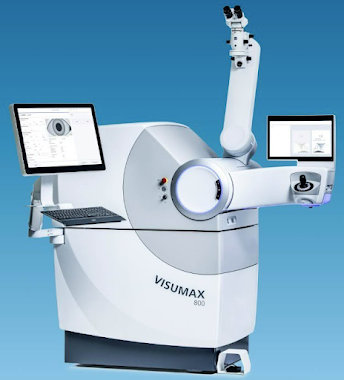Is Smile Pro Eye Surgery Allowed in Police?
In recent years, Smile Pro eye surgery has gained popularity as a revolutionary procedure to correct vision impairments. However, one question that often arises is whether this procedure is allowed for police officers. In this article, we will delve into the topic to determine whether Smile Pro eye surgery is permitted in the police force. We will explore the requirements, considerations, and potential benefits of this procedure for police officers.
Understanding Smile Pro Eye Surgery
Before we dive into the specifics of whether Smile Pro eye surgery is allowed in the police force, it's essential to understand what this procedure entails. Smile Pro eye surgery, also known as Small Incision Lenticule Extraction (SMILE), is a minimally invasive procedure used to correct vision impairments such as myopia (nearsightedness). This innovative technique involves creating a small incision in the cornea to remove a lenticule, reshaping the cornea and improving vision.
The Requirements for Police Officers
To determine whether Smile Pro eye surgery is allowed in the police force, it's crucial to examine the requirements and regulations that govern the eligibility of police officers for such procedures. While specific requirements may vary depending on the jurisdiction, there are some common considerations.
Visual Acuity Standards
Police officers are typically required to meet specific visual acuity standards to ensure they can perform their duties effectively. These standards often involve minimum visual acuity requirements, which may be measured by visual acuity tests, such as the Snellen chart. The acceptable level of visual acuity may vary, but it is generally expected that police officers have good unaided vision.
Acceptance of Refractive Surgeries
The acceptance of refractive surgeries, including Smile Pro eye surgery, in the police force depends on various factors. Some police departments may have specific policies that allow or restrict certain types of refractive surgeries. These policies are often put in place to ensure the safety and effectiveness of the procedure for police officers.
Consultation with a Medical Professional
If a police officer is considering Smile Pro eye surgery, it is crucial to consult with a medical professional, preferably an ophthalmologist experienced in refractive surgeries. This consultation will help determine whether the officer meets the necessary requirements for the procedure and whether it is a viable option based on their individual circumstances.
Benefits of Smile Pro Eye Surgery for Police Officers
Now that we have explored the requirements and considerations surrounding Smile Pro eye surgery for police officers, let's delve into the potential benefits of this procedure.
Improved Visual Acuity
One of the primary benefits of Smile Pro eye surgery is improved visual acuity. For police officers, having excellent unaided vision is crucial for performing tasks such as patrolling, reading license plates, and identifying individuals from a distance. Smile Pro eye surgery can help officers achieve clearer vision without the need for glasses or contact lenses.
Enhanced Safety and Performance
By undergoing Smile Pro eye surgery, police officers can enhance their safety and performance on the job. With improved vision, officers can react more quickly to potential threats, identify suspects more accurately, and make split-second decisions with greater confidence. This can contribute to overall job effectiveness and officer safety.
Convenience and Cost Savings
Another advantage of Smile Pro eye surgery for police officers is the convenience and cost savings it offers. With corrected vision, officers no longer need to rely on glasses or contact lenses, eliminating the need for constant maintenance and potential issues that may arise from wearing corrective eyewear on the job. Additionally, the long-term cost savings from not having to purchase eyewear can be significant.
Considerations and Potential Risks
While Smile Pro eye surgery offers numerous benefits, it's essential to consider the potential risks and limitations associated with the procedure.
Recovery Period
After undergoing Smile Pro eye surgery, police officers may need to take a temporary leave of absence from their duties to allow for proper healing and recovery. The length of the recovery period can vary depending on individual circumstances, but it is crucial to consider this aspect when planning for the procedure.
Potential Complications
As with any surgical procedure, there are potential complications associated with Smile Pro eye surgery. These may include dry eyes, halos or glare, fluctuating vision, and other rare complications. It is essential for police officers to thoroughly discuss these risks with their medical professionals before making a decision.
Policy and Regulation Considerations
Police officers should also consider the specific policies and regulations of their department regarding refractive surgeries. Some departments may have restrictions or requirements that need to be met before undergoing the procedure. It is crucial to understand and comply with these policies to ensure a smooth process.
Conclusion
In conclusion, the allowance of Smile Pro eye surgery for police officers varies depending on the jurisdiction and specific policies of each police department. While some departments may permit this procedure, others may have restrictions or additional requirements. Police officers considering Smile Pro eye surgery should consult with a medical professional and thoroughly understand the eligibility criteria, potential benefits, and risks associated with the procedure. By doing so, they can make an informed decision that aligns with their individual circumstances and the regulations of their department. Remember to consult with your department and medical professional for the most accurate and up-to-date information regarding Smile Pro eye surgery for police officers.




Comments
Post a Comment